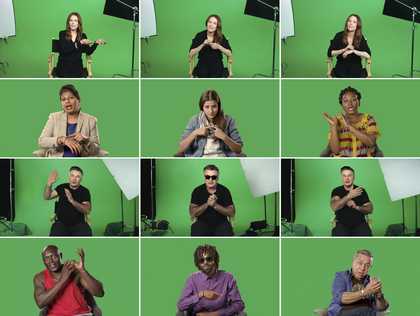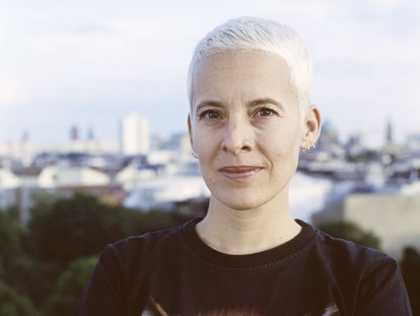Love Story 2016 considers whose voices we are willing to listen to in a media-saturated world. Does our need to be entertained harm our ability to pay attention? How does the manner in which a story is told encourage or reduce our ability to feel empathy?
Evoking the global scale of the refugee crisis, Love Story is based on interviews with six people from different parts of the world who have been forced to flee unbearable circumstances in their home countries. In a first room, actors Alec Baldwin and Julianne Moore re-perform fragments from these interviews. These performances are followed by the original full-length interviews, presented in a second space.
Love Story reflects on a media environment that prioritises celebrity over the real-life experiences of people facing adversity. Blockbuster films or celebrity-led charity campaigns may move audiences to tears, but those most affected are seldom given the opportunity to tell their own stories.
The interviews were conducted in Berlin, New York and Cape Town, where each person was seeking or had recently been granted asylum. They feature Sarah Ezzat Mardini, who escaped war-torn Syria; José Maria João, a former child soldier from Angola; Mamy Maloba Langa, who fled sexual violence in the Democratic Republic of Congo; Shabeena Francis Saveri, an Indian transgender activist; Luis Ernesto Nava Molero, a political dissident from Venezuela; and Farah Abdi Mohammed, a young atheist from Somalia.
Tate Liverpool is located on the Royal Albert Dock Liverpool. There is level access to the gallery through the main revolving doors and two side doors.
There are lifts to all floors of the gallery, or alternatively you can take the stairs.
- Toilets are located in the basement and on the first and second floors.
- A Changing Places toilet is located in the ground floor foyer.
- Ear defenders can be borrowed from the front desk.
To help plan your visit to Tate Liverpool, have a look at our visual story. It includes photographs and information of what you can expect from a visit to the gallery.


